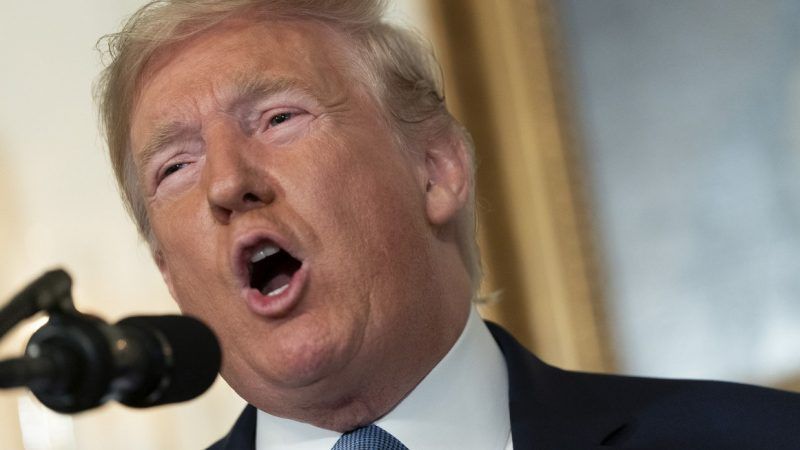Fighting Over Video Game Violence Shows Who Prefers Culture Wars Over Reality
Deflections, generational conflict, and misleading data abound.

Immediately after the deadly mass shooting in El Paso, Texas, Fox News anchors and talking heads started speculating that the shooter might have been motivated by violent video games. They had no reason to go running to this well. The shooter's manifesto on 8chan hadn't even been discovered yet.
That reaction was immediately followed by a cavalcade of coverage explaining that there is no scientific data or evidence that violent video games contribute to real world violence. Video gaming is an extremely popular hobby among a wide swath of adults, especially young men. In all likelihood, just about any American male (at least any under the age of 50) who goes on a shooting rampage is likely to have a lengthy history of gaming of some type. You might as well blame it on pizza consumption. The argument is basically, "This is a thing that these guys like. There's violence in some of these things. Ergo, this thing must have contributed to the violence."
Unfortunately, quickly reminding people that the data doesn't support any claim that video games cause violence didn't silence the nonsense. (There's even a mocking hashtag campaign.) In fact, President Donald Trump explicitly named violent video games (as he has before) as one of the culprits for the shooting, saying, "We must stop the glorification of violence in our society. This includes the gruesome and grisly video games that are now commonplace." Here's the clip:
Over at The Atlantic, Ian Bogost observes that blaming video games, once a bipartisan political affair, now seems to have become a hallmark of the Republican party:
This framing has obvious political benefits. The National Rifle Association started pointing fingers at games after Sandy Hook, and it redoubled its efforts to use the medium to draw attention away from gun possession and gun control after Parkland. Video-game violence seems to have transformed from an issue of bipartisan and earnest cultural opprobrium—video games are gross and maybe harmful—to a sacrificial lamb slaughtered in the service of preserving gun rights.
That's produced a contrarian response from Democrats. After the barrage of video-game detractions wound through the airwaves, Representative Alexandria Ocasio-Cortez tweeted, "Video games aren't causing mass shootings, white supremacy is." Outside the political sphere, others have noted that violent video games are sold worldwide, but that only the United States possesses the surplus of firearms that actually carry out gun violence.
Democratic presidential frontrunner Joe Biden apparently still clings to a belief that video games are a problem, however, though he's stopping short of blaming them for murders. In an interview with CNN, Biden said, "It is not healthy to have these games teaching the kids the dispassionate notion that you can shoot somebody and just, you know, sort of blow their brains out."
Take note of the generational gap. Trump and Biden are both of an era that has no cultural connection to video games, and Trump and Fox News are reaching out to an older generation that is frequently suspicious of youth culture. It's easy to imagine the interest in blaming video games for violence fading in about a decade as we have fewer baby boomers among us.
Blaming video games for violence is a cynical, manipulative way for gun rights advocates, like Trump, to try to deflect attention to a scapegoat. It's not working. Trying to deflect gun control arguments to a different subject rather than face them head-on may perpetuate culture wars but won't reduce the heat on supporters of gun rights. Instead, we may still end up with a host of new laws that restrict freedoms without actually addressing mass shootings. Rather than figuring out solutions for mass shootings (if there are any feasible ones), blaming video games simply perpetuates the culture wars between the old and young and the left and the right, while short-circuiting anything meaningful.


Show Comments (36)